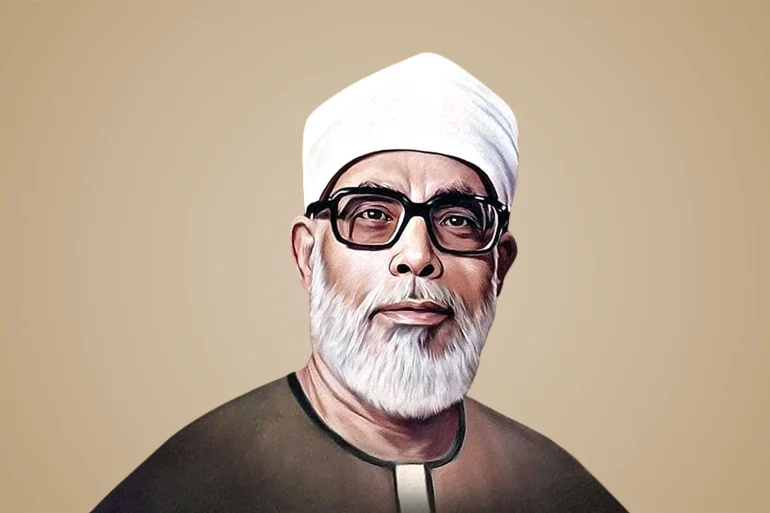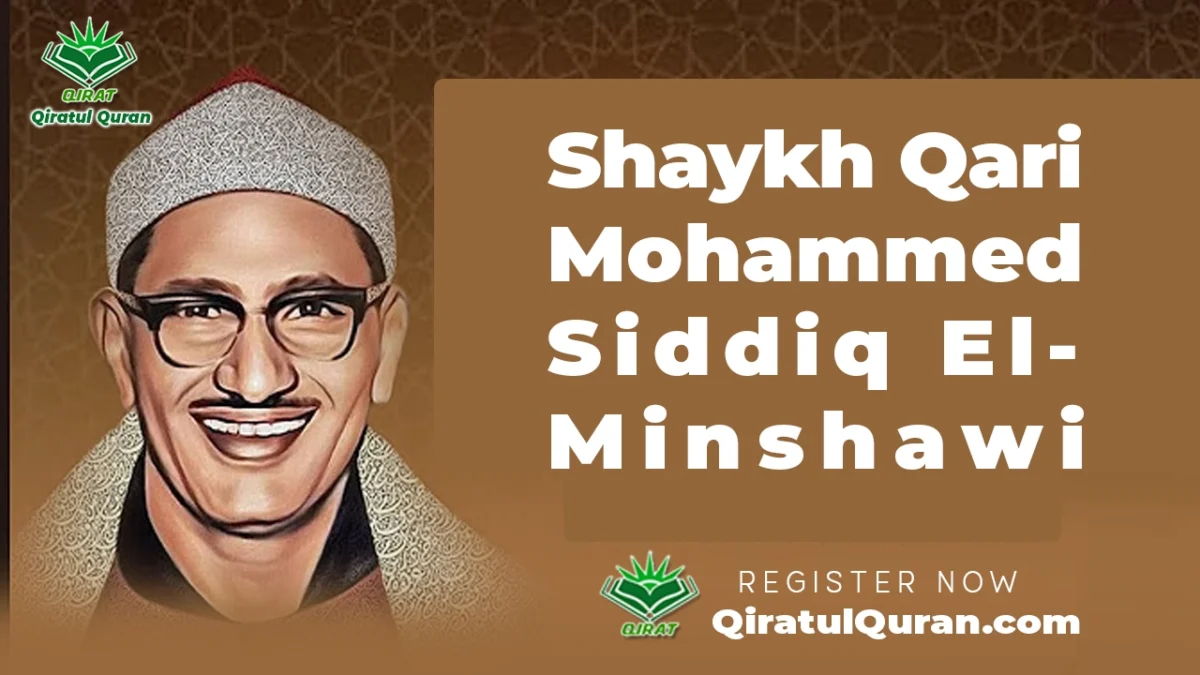Introduction to Quran Reciters in Egypt
Egyptian Quran reciters have a long and rich history of Quran recitation (Maqamat) and Quran memorization. Egypt has produced some of the most renowned Quran reciters in the Muslim world for centuries. The tradition of musical Quran recitation has become an integral part of Egyptian culture and heritage.
Importance of the Quran in Egypt
As a predominantly Muslim country, the Quran holds a special significance for Egyptians. Children start learning how to properly recite the Quran from a very young age. There is a strong emphasis given to correct pronunciation and intonation when reciting the Muslim holy book.
Many Egyptians memorize the entire Quran, while others memorize parts of it. Having an excellent command of Quran recitation is considered a matter of great honor and prestige in Egyptian society. The best Quran reciters attain celebrity status in the country.
Evolution of Quran Recitation Styles
Quran reciters in Egypt are masters of various styles of recitation (known as Qira’at). These recitation styles have evolved over generations and have solid technical rules concerning pronunciation and intonation.
Some of the most popular Egyptian styles of Quranic recitation include:
- Hafs recitation style – named after the reciter ‘Asim bin Abi al-Najud al-Asadi
- Shu’ba recitation style – attributed to Shu’ba bin ‘Ayyash Salim
- Doori recitation style – based on Abu Amr al-Doori’s style of recitation
Egyptian Quran reciters meticulously follow these recitation styles and help preserve them for future generations.
Prominent Egyptian Quran Reciters
Egypt has produced a long list of extraordinary Quran reciters over the past century who have left an indelible mark within and abroad. Some of the most notable Egyptian Quran teachers include:
Sheikh Mahmoud Khalil Al-Hussary

Sheikh Al-Hussary (1917-1980) is widely regarded as one of the most influential Quran reciters of the 20th century. He adopted the Hafs style of recitation and his brilliant command over all aspects of recitation turned him into a global icon.
Some key facts about Sheikh Al-Hussary:
- Memorized the entire Quran at the age of 12
- Co-founded the Quran Reciters’ Association in Egypt
- His recitation style inspired many contemporary Quran reciters
Sheikh Al-Hussary had a far-reaching impact not just in Egypt but the entire Muslim world due to his beautiful voice and stylistic mastery. His recitations continue to be heard in mosques and homes around the world.
Sheikh Abdul Basit Abdus-Samad

Sheikh Abdul Basit (1927-1988) is considered a legendary figure when it comes to Quran recitations in Egypt and beyond. He is most known for his recitations during Ramadan that were broadcast on Egyptian radio for decades.
Some key facts about Sheikh Abdul Basit:
- Specialized in both the Warsh and Hafs recitation styles
- Memorized the Quran by age 11 and went on to also memorize extensive Islamic commentary
- Perfected various styles like murattal, Mujawwad, etc.
- Recognized globally for his emotional and expressive recitations
Sheikh Abdul Baset left a timeless legacy through his audio recordings that are still cherished around the Muslim world. Many modern Quran reciters in Egypt try to emulate his iconic style.
Sheikh Mohammed Siddiq El-Minshawi

Among the most celebrated Egyptian Quran reciters from the 20th century is Sheikh Mohammed Siddiq El-Minshawi (1920-1969). He established his distinctive style of Quranic recitations.
Key facts about Sheikh El-Minshawi include:
- The first Egyptian Quran reciter to make commercial recordings
- Memorized the Quran at age 12 along with mastering the 10 canonical methods of recitations
- Known for his beautiful voice, melodious style, and skillful application of proper tajweed rules
- Recitations added solemnity to important Egyptian events presided over by President Gamal Abdel Nasser
Sheikh Minshawi set new standards in Quran recitations that continue to be revered and imitated by today’s Egyptian reciters.
So in summary, Egypt has produced a wealth of extraordinary Quran reciters over the past century who have continually raised the bar when it comes to proper and melodious Quran recitations. Their artistic brilliance alongside technical mastery has enabled Quran recitations to flourish in Egypt like few other Muslim nations around the world. Even today, Egypt continues to be a leader in this domain.
Modern Trends in Quran Recitations in Egypt
While the core style and essence of Quran recitations in Egypt draw heavily from 20th-century icons like Sheikh Al-Hussary, Sheikh Abdul Basit, and Sheikh Minshawi; there are also some modern trends and adaptations that are gaining popularity:
Fusion with Music
One of the most popular modern trends is the fusion of Quran recitations with Islamic devotional music. These musical compositions typically utilize different traditional Arab-Islamic musical instruments alongside vocals by renowned Quran reciters.
This allows contemporary youth to enjoy Quran recitations in more innovative and relatable settings while staying connected to their heritage.
Tech-Enabled Methods
Many teachers of Quran recitations are also leveraging technology to impart training online even across borders. Apps focused on Quran learning now integrate recitation tutorials to make it easier for students to learn.
Funding for tech in Islamic education segments is also improving which points to a healthier growth of tech-enabled training methods for Quran recitations.
International Outreach
Top Egyptian reciters are making concerted efforts to expand their global audience including increasing concerts and events in Muslim minority countries.
Many are conducting international tours, releasing recordings worldwide, and using social media effectively to connect with diverse demographics living around the world.
So in summary – while staying true to their artistic lineage and heritage, Egyptian Quran reciters are also adopting smart strategies to broaden their appeal – especially targeting younger listeners open to contemporary interpretations of the age-old tradition of melodious Quran recitations.
Challenges Faced by Quran Reciters
However, it’s not all positive for the current generation of Egyptian Quran reciters. There are also some real challenges they need to navigate. Below are some of the core challenges:
Declining Youth Interest
Despite adaptations, many Egyptian youth are gravitating more toward pop culture and Western art forms. The appeal of Quran recitations is declining amongst urban teenagers. Keeping youth meaningfully connected to tradition is becoming an uphill task.
Commercial Dilution
The growing commercial appeal has also diluted standards whereby now the number of concerts/events is overriding the substance and quality. Raw commercial pressures risk diminishing the sanctity attached to Quran recitations.
Limited Career Avenues
Unlike in the previous generations, now the avenues to become accomplished Quran reciters are lower and concentrated only in a few institutions like Al-Azhar University. The infrastructure required to nurture all interested talent isn’t available.
Threat of Extremism
The continuous threat of extremism makes parents cautious of pushing children too deeply into religious careers. Quran reciters also have to be wary of certain misinterpretations of theological doctrines while teaching.
So these are some formidable challenges that need calibrated responses from Quran recitation academies, policy circles, as well as media platforms.
The Future Trajectory
While recognizing the inherent challenges, there are constructive ways in which Quran recitations can thrive further in Egypt:
Revamping Pedagogy
Quran recitation pedagogy needs an urgent overhaul to resonate better with 21st-century students through more immersive technologies and customization. Rote learning mechanisms need to be strengthened with empathy and context.
Twinning with Jobs
Twinning Quran recitation training with skills around broadcasting, live performance, creative arts, etc can improve the career prospects of students. This can reignite interest amongst Egyptian parents looking for avenues that balance religion and livelihoods.
Cultural Integration
Intrinsic integration with Egyptian pop culture is vital instead of working in silos. Quran reciters collaborating with mainstream musicians, movies, and media channels can expand their reach considerably while retaining authenticity.
InternationalVisibility
With diaspora demographics constituting an important target segment, Quran recitation academies need to tap international events, virtual mediums, and global publishing platforms to enhance visibility in Muslim communities living globally.
Purposeful progress around pedagogy, economic integration, cultural relevance, and global branding can cement Egypt’s leadership in Quran recitations in the 21st century. By combining tradition and transformation, this niche can continue flourishing for generations ahead.


